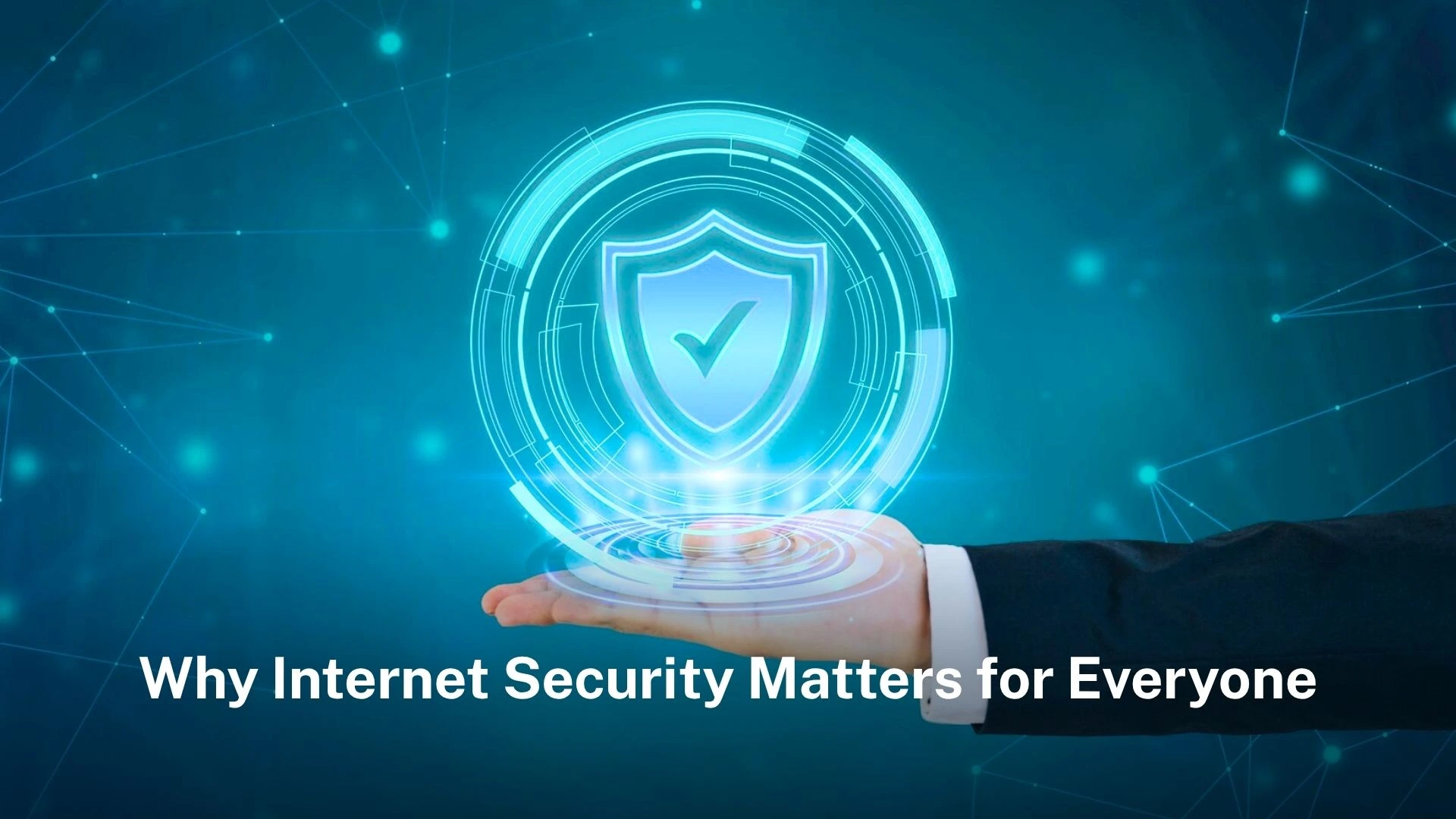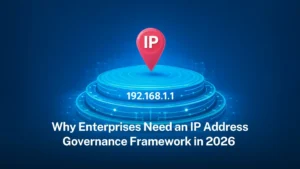As we spend more time online, ensuring robust internet security is vital for protecting personal and financial data.
Table of Contents
ToggleKey points:
Internet security is crucial for safeguarding personal data, privacy, and finances against cyber threats like hacking and identity theft.
Cybersecurity isn’t just for tech experts; everyone, from individuals to businesses, must adopt basic security practices to prevent attacks.
A digital world in need of security
Since the advent of digital age, our lives are becoming more and closer to being connected with Internet. Life without the internet would not only be difficult for me just since I work as a consultant, but also because of all my daily needs such as; social networks like Facebook or Instagram is on that. along with online bank and shopping through e-commerce to health services who are targeted millennials today include telemedicine (services medical care via telephone ). We avail the benefit of digital connection and in so doing, expose ourselves to a myriad of security vulnerabilities.
Today internet security carries a clear importance as never before. With increasing numbers of identity thefts, data breaches and cyberattacks – securing online activities is on the top list. For an individual consumer surfing the web or a business responsible for safeguarding confidential customer data, failing to maintain strict digital security will only get you into trouble. In this essay, we are going to look at the internet security for all and also share few tips of how you can stay safe online by following some simple steps.
Understanding the threats: What could go wrong?
Because of its size and dynamic nature, the internet is a prime target for cybercriminals. In 2020, about 40% of businesses suffered a cyberattack, according to data from the UK government. Phishing emails that attempt to steal private data and ransomware campaigns that prevent users from accessing their own computers until a ransom is paid are examples of these types of assaults.
Here are some of the most common threats to internet security:
Phishing scams: A common method used by cybercriminals to steal sensitive information, such as usernames, passwords, and bank account details. These scams often come in the form of fraudulent emails or websites that appear legitimate.
Malware and ransomware: Malicious software that can infect your device, steal your personal information, or even demand payment to restore access to your files.
Data breaches: When cybercriminals gain access to private databases and steal sensitive information, such as credit card numbers, social security numbers, or personal health data. The Information Commissioner’s Office (ICO) reported over 300 breaches in the first quarter of 2021 alone.
Identity theft: When criminals steal your personal information, they can use it for fraudulent activities like opening accounts in your name or making unauthorised purchases.
Understanding these threats is the first step in preventing them. However, it’s not just businesses that are at risk. Individuals also face significant dangers when they fail to adopt safe internet practices.
The rise of cybercrime: Why it’s everyone’s problem
Recently, there has been an increase in web-related crimes worldwide. The growth of digital technology, along with a rise in cyber hacks and increasingly sophisticated hackers, has made these attacks easier to execute from virtually anywhere. Unlike before, when physical access to a building was necessary for a breach, these attacks can now occur from home with generally lower chances of being apprehended. Europol has indicated that cybercrime is rapidly emerging as one of the most prevalent types of crime on a global scale.
While high-profile corporations may be the focus of these attacks, small businesses and individuals face equally significant risks. This situation is particularly alarming because smaller entities often have weaker cybersecurity measures in place, making them prime targets for cybercriminals.
Cybercriminals are increasingly pursuing high-value personal data in addition to financial institutions and businesses. Criminals can profit greatly from information like passwords, bank account information, and social security numbers. Once acquired, this data may be utilized directly for identity theft or sold on the illicit market. Financial losses, fraudulent transactions, or unauthorized access to personal accounts can all arise from the exploitation of even modest quantities of data, such as a single bank account or credit card number.
The fact that many people and companies are unaware of the long-term effects of a data breach makes these crimes much more hazardous. In 2020, the average cost of a data breach was more over $3.8 million, according to an IBM report. This covers not only the immediate expenses of repairing the breach but also any fines from the authorities, legal fees, and harm to one’s reputation. The repercussions can be disastrous, especially for smaller companies that might not have the means to bounce back from such an incident fast.
As cybercriminals keep improving their techniques, they are also getting better at taking advantage of flaws in human nature. For instance, phishing attacks depend on deceiving people into divulging private information or clicking on harmful links. These attacks, which frequently imitate well-known corporations or organizations and use recognizable logos, can be extremely convincing. Therefore, nobody is exempt. These highly targeted advertising have the potential to deceive even the most cautious internet users.
It is evident that protecting our digital life is becoming a problem that affects more than just corporations or governmental organizations, as cybercrime is on the rise and shows no signs of abating. Everyone is impacted by cybercrime, which calls for coordinated efforts to solve. This includes both people and large corporations.
The consequences of poor internet security
While some may believe they’re safe from cyberattacks because they aren’t a high-profile target, this couldn’t be further from the truth. Cyberattacks don’t just affect major corporations; they can impact everyday individuals, schools, and small businesses. Poor internet security can lead to:
Financial loss: Cybercriminals can use your stolen information to access your bank accounts, make unauthorised purchases, or drain your savings. In some cases, ransomware attacks may demand large sums of money for the return of your files.
Loss of privacy: With personal information in the hands of cybercriminals, you risk your privacy being violated. Cybercriminals may share your data with third parties, use it for blackmail, or even commit fraud in your name.
Damage to reputation: Both individuals and businesses can suffer a reputation loss if personal data is stolen and misused. For businesses, a data breach can lead to customer distrust and a loss of business.
Legal consequences: In some industries, failing to protect data properly could result in legal action. For example, GDPR violations in the UK can result in hefty fines for businesses that do not take adequate steps to protect customer data.
The consequences of cybercrime extend beyond immediate losses. For individuals, the emotional and psychological toll of identity theft and personal data breaches can be substantial. For businesses, recovery can be time-consuming, costly, and even career-defining.
Why is internet security everyone’s responsibility?
You may be asking yourself, “Is internet security only relevant for tech professionals or big companies?” The answer is no. Internet security is a collective responsibility that affects everyone, whether you use the internet casually or operate a small business.
Dr. Gary McFarlane, a cybersecurity specialist at the Open University, states, “Everyone should understand fundamental cybersecurity concepts, such as the importance of not sharing passwords and being cautious with dubious emails. Protecting sensitive information is a duty shared by both individuals and organizations.”
For individuals, practicing safe online behaviors can greatly lessen the likelihood of experiencing cyberattacks. Simple actions like creating strong passwords, activating two-factor authentication (2FA), and being cautious of unexpected emails can help ensure your safety online.
For businesses, ensuring internet security is crucial not just for safeguarding information but also for preserving customer confidence. Neglecting to establish strong security measures can lead to serious financial losses and damage to reputation. The UK’s National Cyber Security Centre (NCSC) provides businesses with resources on how to safeguard their online assets and information.
How to protect yourself: Basic internet security tips
While advanced cybersecurity protocols are important for businesses and tech-savvy individuals, everyone can benefit from adopting basic security practices. Here are some tips to help you stay safe online:
Use strong, unique passwords: Always create complex passwords that combine numbers, symbols, and both upper- and lower-case letters. Avoid using the same password across multiple sites.
Tip: Consider using a password manager to store and generate strong passwords.
Enable two-factor authentication (2FA): This adds an extra layer of security by requiring you to verify your identity through a second method, such as a phone number or email address, in addition to your password.
Be cautious with public Wi-Fi: Public Wi-Fi networks are less secure, so avoid accessing sensitive accounts or making financial transactions while connected to these networks. If you must use public Wi-Fi, consider using a VPN (Virtual Private Network).
Keep software up to date: Regularly update your devices, apps, and antivirus software to ensure you have the latest security patches. Hackers often exploit outdated software to launch attacks.
Be mindful of phishing attempts: Always verify the sender before clicking on links or downloading attachments from emails or messages that seem suspicious. Even if an email looks official, if something feels off, it’s worth verifying.
Back up your data: Regular backups ensure you don’t lose important information if your device is infected with malware or ransomware. Cloud services and external hard drives can help you keep copies of important documents.
By following these simple steps, you can significantly reduce your risk of becoming a victim of cybercrime.
The importance of encryption in internet security
Encryption serves as one of the most powerful techniques for safeguarding sensitive information online. When data undergoes encryption, it is transformed into a coded format that can only be interpreted by those possessing the right decryption key. This significantly increases the difficulty for hackers to access and exploit your data.
Numerous websites, particularly those related to e-commerce or banking, utilize encryption technologies such as SSL (Secure Sockets Layer) to protect your information during transmission. To confirm that a website is encrypted, look for the padlock symbol in your browser’s address bar.
Encryption is crucial not only for large organizations but also for individuals seeking to secure their personal information. For instance, always verify that the payment process is encrypted when making online purchases to minimize the risk of fraud exposure.
Future trends in internet security
As technology continues to advance, so too does the sophistication of cyberattacks. In the future, we can expect to see:
Increased use of AI in cybersecurity: Artificial intelligence and machine learning algorithms will play a key role in identifying and responding to threats more quickly. AI can analyse vast amounts of data to detect unusual patterns or predict potential breaches before they happen.
More emphasis on privacy: As consumers become more aware of the importance of data privacy, companies will likely face increased pressure to adopt stricter data protection measures. This will include more robust privacy policies and more transparent user agreements.
Stronger authentication systems: Biometrics, like fingerprint scanning or facial recognition, may replace passwords in the future to improve security. These technologies offer a more secure and user-friendly alternative to traditional passwords.
Increased regulation of cybersecurity: Governments around the world will likely implement stricter regulations for businesses to ensure they take appropriate steps to secure user data. This will help close the gap between current cybersecurity practices and evolving threats.
Secure your digital future
There are countless opportunities on the internet, but there are also significant risks. You can safeguard your online presence and defend yourself from cyber threats by following basic internet security procedures and staying vigilant. It is clear that internet security is a shared responsibility rather than just a technological issue, regardless of whether you are an individual or a business.
The need for improved cybersecurity will only grow as long as cyberthreats persist. However, anyone may take steps to protect their data, privacy, and sense of security by taking the right precautions.




